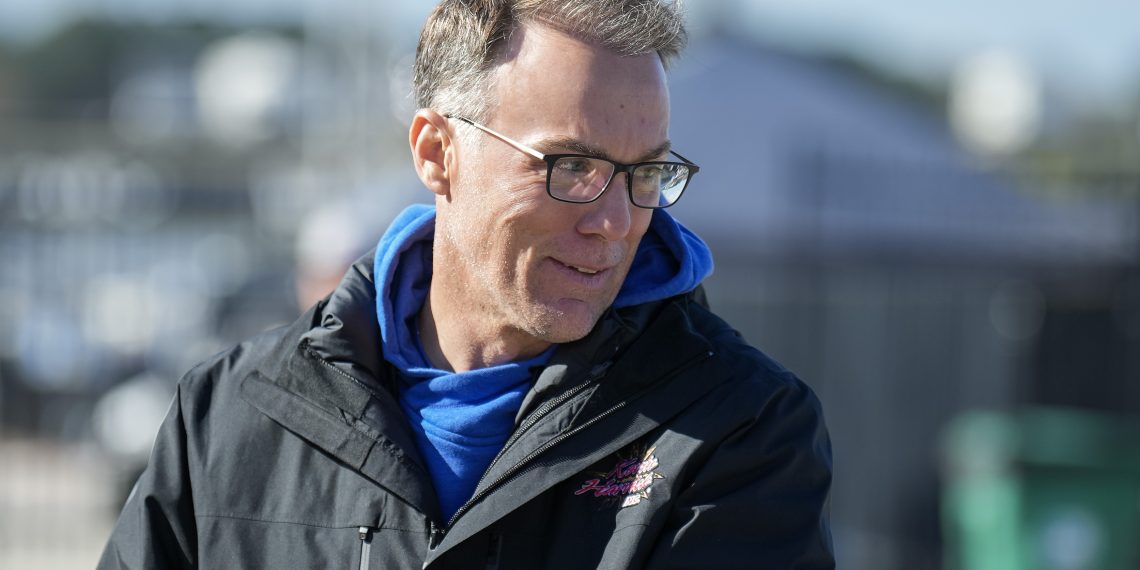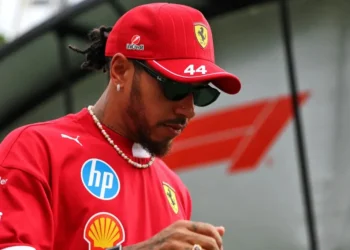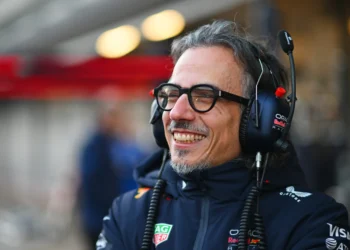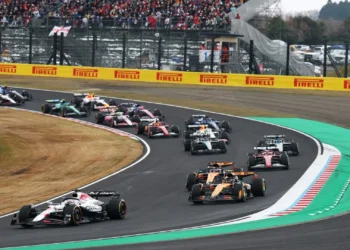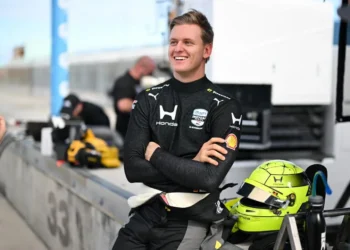As Kevin Harvick’s frustration with NASCAR’s controversial rulings reaches a boiling point, he takes a page out of Elon Musk’s book and proposes a radical overhaul of the organization’s rulebook. Harvick’s outspoken criticism of the inconsistencies in NASCAR’s officiating has a long history, with episodes ranging from concerns over safety following a fire incident involving his car in 2022, to the more recent disputed penalty call for Austin Cindric.
The latest bone of contention for Harvick and other NASCAR stakeholders is the questionable tactic employed by Christopher Bell during a race to avoid a penalty and crew suspensions. Bell made the snap decision to pit in the box of the No. 19 JGR team, a move which Harvick feels may fall into an ethical grey area. Although NASCAR did penalize Bell’s team for the unconventional pit stop, many feel that the sanctioning body’s response has only fueled further controversy and highlighted the need for reform.
In an echo of Elon Musk’s notorious dislike of red tape and unnecessary regulations, Harvick has proposed the creation of a “Department of NASCAR Efficiency” or “DONE” committee. The proposed committee’s objective would be to simplify and streamline the current regulations, eliminating ambiguities and potential loopholes.
Harvick’s vision for the future of NASCAR goes beyond mere rule modifications. He advocates for a complete transformation in the organization’s operations and officiating processes. He envisions a merit-based system where drivers’ skills and strategies are paramount, eliminating the need for teams to find and exploit loopholes in order to succeed.
In Harvick’s view, NASCAR’s current rulebook is riddled with confusing and inconsistent rules that are the result of constant alterations. He believes that the need to continually create new rules to address issues stemming from existing ones indicates a fundamental problem with the original rules. This patchwork of regulations has been at the root of numerous controversies in the sport.
While Harvick’s call for action is audacious, it’s not the first time NASCAR has faced demands for an overhaul. The sport’s history is peppered with instances of resistance to change, dating back to the 1960s when drivers attempted to unionize, seeking improved financial security and safety measures. NASCAR founder Bill France Sr.’s rigid stance against the unionization efforts, even going to the extent of banning prominent drivers, reflects a deeply ingrained resistance to rule changes.
The question now is whether Harvick’s call for reform will be heeded or if NASCAR’s historical pattern of resistance will persist. With the backdrop of the Race Team Alliance’s failed negotiations and the ongoing court battles involving 23XI Racing and FRM, it remains to be seen if NASCAR is ready to relinquish control and embrace change. Will history repeat itself, or will Harvick’s bold proposal usher in a new era for the sport? Only time will tell.

